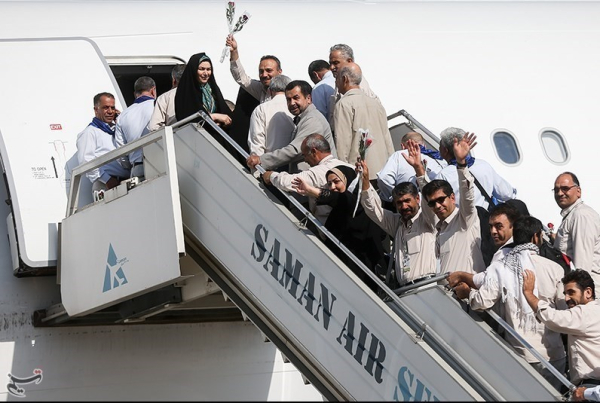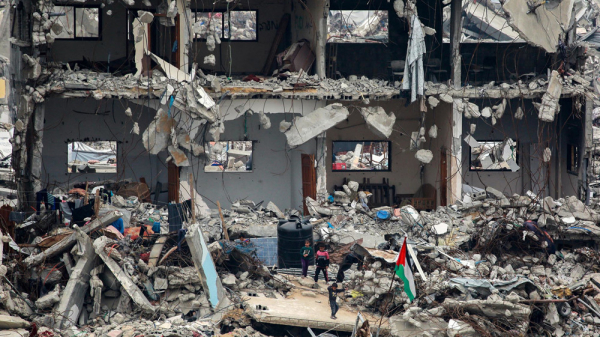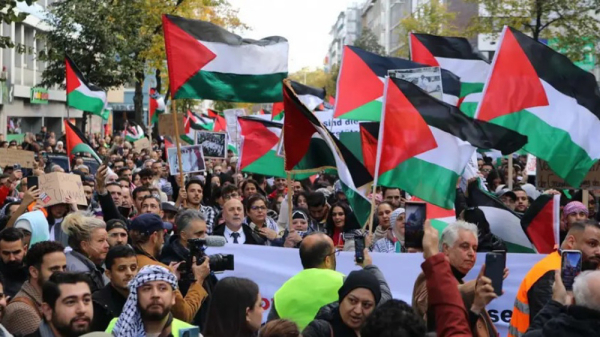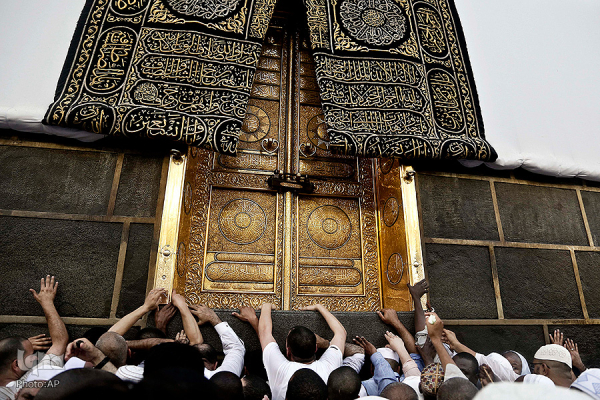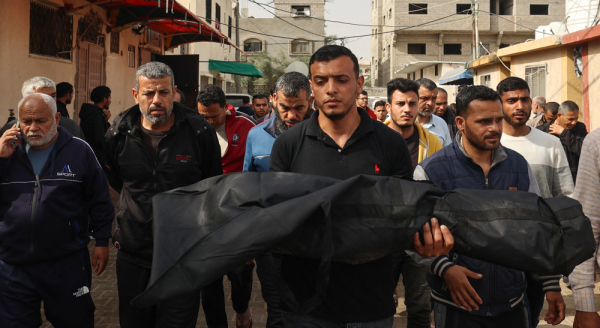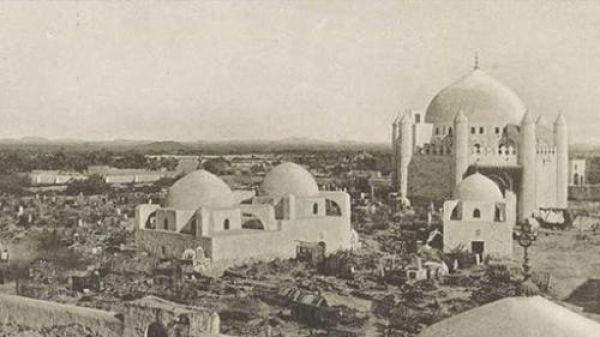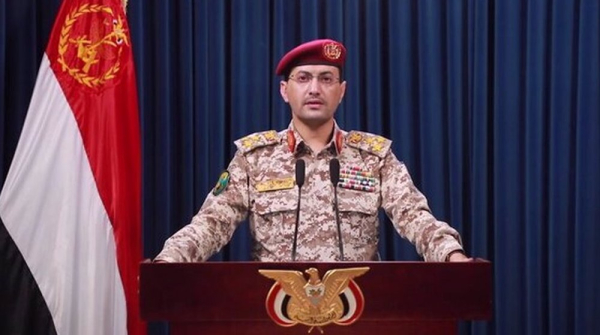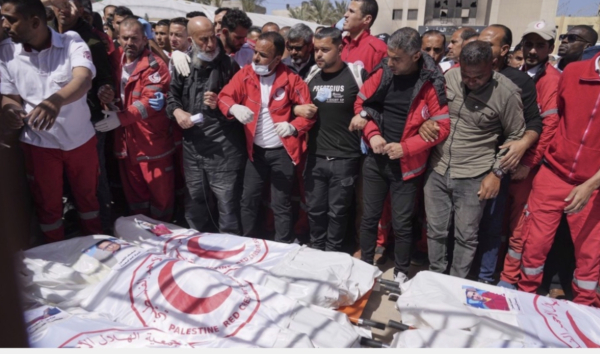zarezadeh
Good behavior towards companions
Softness in speech, using beautiful and meaningful words, loving glances, kindness, removing sadness from the companion's face, having a smile on his lips, cooperating in work, putting others before himself, being friendly and enthusiastic with fellow travelers are examples of good behavior that are especially appreciated and rewarded during the Hajj journey. Such behaviors attract others and make companions and friends interested in the person; friends and companions who may become the key to solving a person's problem or problems during the journey and upon returning home.
The Quran gave the beloved Prophet of Islam some commands regarding good behavior towards others, and he applied those commands towards others until the end of his life, and that same behavior contributed to the prosperity of Islam and the addition of people and strength to the school of truth and the cause of others' love for the Prophet.
“So, by the grace and mercy of God [which dawned on the horizon of your existence], you became gentle and kind to people, and if you had been harsh and hard-hearted, they would have scattered from around you. So, based on this grace and mercy that God has placed in you, forgive them for their unpleasant actions and encounters, and ask forgiveness for them, and consult with them in matters, and when you have decided to do something, put your trust in God; for God loves those who put their trust in God.”
By benefiting from this noble verse, the pilgrim should be aware that being kind to companions and fellow travelers is a divine breeze and a heavenly benefit, and being rude, harsh, and harsh to companions is a sign of the poisons of hell and the heat of hellfire.
The pilgrim should be aware that each believer has rights over each other and it is necessary to observe those rights as much as possible.
It is narrated from Imam Sadiq (a.s.):
“God is not worshipped with anything greater than fulfilling the rights of a believer.”
He advises the Shiites:
“For the sake of God, protect yourselves from every sin; be good brothers to one another, love one another for the sake of God, be in contact with one another, be kind and loving to one another, visit one another, and talk to one another about our school of thought and make it alive and established [in the community].
When a person fulfills the rights of his religious brother, he certainly makes him happy and contented, and according to a narration from the Messenger of God (s.a.w.s.):
“Whoever pleases a believer, pleases the Messenger of God, and whoever pleases the Messenger of God, pleases God.”
Therefore, the most beloved deeds to God are certainly making believers happy.
Pilgrim Etiquette
Hossein Ansarian
Israeli soldiers reveal shocking accounts of ‘Perimeter’ crimes in Gaza: Report
Israeli soldiers have admitted that the regime is systematically demolishing residential buildings and civilian infrastructure in the besieged Gaza Strip under the pretext of establishing a so-called buffer zone, referred to by the military as “the Perimeter.”
The Israeli group Breaking the Silence recently compiled a report that includes accounts by soldiers involved in enforcing the “Perimeter” scheme.
The buffer zone covered roughly 55-58 square kilometers, which accounts for about 16% of Gaza's total land area, and claimed 35% of its agricultural land.
The soldiers said much of the destruction, targeting of homes, infrastructure, and agricultural land, occurred without a direct threat to the Israeli military, the report said.
The “Perimeter” stretches from Gaza’s northern coast to the southern border with Egypt.
A non-commissioned officer said troops were told there were no civilians in the area. “There is no civilian population. They’re terrorists, all of them. There are no innocents.”
“Hiroshima. That’s what I’m saying, Hiroshima.”
Another sergeant stationed in northern Gaza described how Israeli bulldozers destroyed agricultural fields, including olive groves and crops.
“A very large excavator just comes through and takes out all the soil, kind of rolls it up, flattens it,” said the sergeant.
A captain stationed in southern Gaza said areas around the military-designated so-called security zone became “kill zones” for the Palestinians. “Anyone who crosses a certain line, that we have defined is considered a threat and is sentenced to death.”
The report cited the Israeli soldiers describing the demolition assignments as daily tasks.
“You get up in the morning, get the locations… every day, except if we run out of explosives.”
Israeli Prime Minister Benjamin Netanyahu recently said a corridor would cut off the southern city of Rafah from the rest of Gaza.
Israel has also reasserted control over the northern Netzarim corridor since shattering the ceasefire in March with a surprise bombardment to pressure the Hamas resistance movement to accept new terms for truce.
Netanyahu has vowed to intensify the attacks as part of a broader plan aligned with US President Donald Trump’s proposal to forcibly displace the Palestinians from Gaza.
Press TV’s website
Pro-Palestine activists facing deportation condemn German state repression
Two Irish nationals and a US citizen, who have recently been served with an order asking them to leave Germany over their participation in a pro-Palestinian university protest, have roundly dismissed accusations of anti-Semitism and indirect support for Hamas resistance movement.
Kasia Wlaszczyk, a Polish culture worker, 31-year-old Irish artist Roberta Murray, and 27-year-old American social work student Cooper Longbottom, were given the deportation orders last month, along with 29-year-old Irish citizen Shane O’Brien.
According to a lawyer representing two of the individuals, German authorities have asserted that the group poses a risk to public safety and should consequently leave Germany at the earliest opportunity.
They have been instructed to exit Germany by April 21, or they risk being deported.
Criminal and immigration lawyer Alexander Gorski said his clients had ongoing criminal proceedings for minor charges, such as trespassing, insulting police and resisting arrest related to their attendance at multiple pro-Gaza protests.
The four all participated in a pro-Palestinian protest at Berlin's Free University in October 2024.
Alexander Gorski, a lawyer specializing in criminal and immigration law, stated that his clients are currently facing criminal charges for minor offenses, including trespassing, disrespecting law enforcement, and resisting arrest, all connected to their participation in several pro-Gaza demonstrations.
Berlin's Department for Interior and Sport, which oversees immigration matters, has asked local authorities to revoke their residency permits during the ongoing proceedings.
Gorski stated that the decision was taken despite reservations from Berlin's immigration office, which raised concerns about the legality of expelling EU citizens. Ultimately, the Department for Interior and Sport dismissed those objections.
He noted that his legal team was not informed about the charges against the activists. “We have not yet received the file,” Gorski remarked.
The precise actions for which the four protesters were charged during the controversial protest are not clearly defined.
The possible deportation of two Irish citizens has generated significant controversy in Ireland, prompting Taoiseach Micheál Martin to express that the matter was of “fundamental concern in terms of the freedom of movement rights that EU citizens have.”
The incident reflected a “completely different approach” to the ongoing Israeli onslaught against Gaza between Germany and Ireland, the leader said, adding he would be raising the issue with German officials.
The Irish Foreign Office confirmed it was aware of reports of two of its citizens and was ready to provide consular assistance.
The pro-Palestine activists aim to highlight the challenges facing the Palestine solidarity movement in Germany following Israel's genocidal war on Gaza, with the hope of raising awareness among the broader German public regarding the swift decline of civil liberties within their nation.
Press TV’s website
Israel beats drums of war in run-up to Iran-US talks
Israeli prime minister Benjamin Netanyahu has revisited threats of deployment of military force against Iran’s nuclear facilities, demanding physical destruction of the nuclear sites, a few days before the Islamic Republic and the United States are slated to engage in indirect talks.
The Israeli official made the call in a video address on Tuesday, alleging that the prospect of using military force was the only means of ensuring, what he called, Tehran’s non-pursuance of “nuclear weapons.”
He asserted that any agreement between the United States and Iran could only succeed if Iran’s nuclear facilities were "blown up" and "dismantled" under American supervision.
“We agree that Iran will not have nuclear weapons,” Netanyahu said, referring to his discussions with US President Donald Trump. However, he dismissed the prospect of a purely diplomatic path, saying things would only work if the United States took direct military action to eliminate Iran’s nuclear capabilities.
“If we go in, blow up the [nuclear] facilities, dismantle all the equipment, under American supervision and American execution — that is good,” he claimed.
“If that doesn’t happen,” he added, Iran could “drag out talks.” “Then the option is military,” Netanyahu alleged.
The Israeli premier also said he and Trump had discussed that scenario "at length."
The remarks flew directly in the face of the Islamic Republic’s repeated assertions that it would neither pursue nor possess any such unconventional weapons as per clear moral and religious imperatives.
Netanyahu’s comments followed a tense meeting at the White House, where he appeared publicly out of step with Trump on several major issues, including Iran, regional diplomacy, and trade.
During the meeting, he found out from Trump firsthand that Iran and the US were to engage in indirect talks.
Several major Israeli media outlets later said the Israeli delegation had “shock written all over their faces” after the announcement, saying Netanyahu had returned from the meeting “empty-handed” and “humiliated.” One outlet even described the meeting as the “most failed” one to ever take place between an Israeli premier and a US president.
Nonetheless, Netanyahu tried to frame the visit positively, describing it as “very warm” and suggesting further announcements would be made in due time.
Press TV’s website
The best travel supplies in Hajj
The best and most valuable supplies that a pilgrim to the House of God should prepare before traveling and should carry with him more than anything else in order to benefit from the blessings of the Land of Revelation are knowledge and understanding. Imam Khomeini (may Allah be pleased with him) says in this regard: “It is important that the pilgrim knows where he is going and whose invitation he is accepting? And who is the guest? And what are the etiquettes of this hospitality? And he should know that every selfishness and self-centeredness is contrary to the desire for God and is contrary to the migration to God and causes the spirituality of the Hajj to be violated.” The Value of Visiting the House of God The pilgrim to the Land of Revelation must first of all know where he is going? What great success has God bestowed upon him and how valuable is the visit to the House of God? This spiritual and enlightened journey is so valuable that Imam Sadiq (a.s.) says: “Those who are resting in the heart of the grave wish to have the success of performing Hajj once, in exchange for giving up the world and what is in it!” This statement means that the value of Hajj is beyond imagination, and the knowledgeable pilgrim knows that the value of this worship cannot be measured by material standards. The knowledgeable pilgrim knows that visiting the house is actually visiting the owner of the house, and he goes to visit God on this journey, has accepted His invitation, and is His guest. The knowledgeable pilgrim knows that the hospitality of God Almighty on this journey is not the reception of the pilgrim’s body, which is always God’s guest.
Therefore, he thinks less about material comfort and well-being and tries with all his might to enjoy the spiritual pleasures of this journey and his fellowship with the owner of the house. Finally, the knowledgeable pilgrim knows that the most important etiquette for entering the spiritual guesthouse of God Almighty and enjoying its blessings is purity of heart, and to purify the soul, one must remove the root of spiritual impurities and pollution, which is selfishness and self-centeredness. However, one who does not know the value of this journey and the meaning of God’s hospitality and its etiquette cannot benefit from what God Almighty has prepared for the guests in His harem and enjoy the blessings of the land of revelation. A pilgrim who thinks of more comfort, better food, and more gifts in the land of revelation does not know the meaning of God’s hospitality! He thinks more about breakfast, lunch, and dinner than about spiritual enjoyment of Hajj, Umrah, and the host, and if he sometimes sees a mistake or omission in the hospitality, it is an unforgivable sin!
Rather than feeling sad about returning empty-handed from the spiritual blessings of the House of God, he is more concerned with filling his bags with souvenirs. He wanders through the markets of Mecca, Medina, and sometimes Jeddah! He tries with all his might to buy something cheaper, lest unfair merchants overcharge him. If he hears that his friend has bought something cheaper, he is impressed, but he does not know what a great trick Satan has put on his head, and has taken away the most precious opportunities from him at the cheapest price.
It is appropriate not to say anything about ourselves in answering this question, but to ask the owner of the house how he receives guests and which visitor can benefit from his kindness? Undoubtedly, His Book (the Holy Quran) and the sayings of the Prophet’s family - may God’s prayers and peace be upon them all - will help us in reaching the answer to this question. The answer that the Book of God gives us is that: The owner of this house is very merciful and kind, there is no one more merciful than Him. He considers mercy and kindness obligatory upon Himself: The mercy and kindness of the owner of this house are extensive to everything and everyone. He himself said: {And My mercy encompasses all things}, This is not a shortcoming or omission on His part. It is we who must remove the obstacles to attracting the mercy of God. What prevents the visitor to the House of God from enjoying the blessings of this blessed House is pollution. The owner of the house ordered Ibrahim Khalil-ur-Rahman to clean his house for a spiritual reception of pilgrims.
Palestinian reporter dies from burns sustained in Israeli strike on journalist tent in Gaza
Palestinian journalist Ahmad Mansour dies of his critical wounds in Gaza’s European Hospital, on April 8, 2025.
A Palestinian journalist has succumbed to severe injuries and burns he sustained after an Israeli attack targeted a tent sheltering journalists near the Nasser Hospital in the city of Khan Yunis in southern Gaza, amid the unrelenting genocidal war on the besieged coastal territory.
Palestinian media outlets reported that Ahmad Mansour, a father and a journalist for Palestine Today news agency, died of his critical wounds at the European Hospital early on Tuesday.
Wael Abo Omar, a Palestinian journalist in the blockaded territory, wrote earlier in a post published on X social media platform that Israeli missiles had "burned colleague Ahmad Mansour" who was "suffering from severe burns" as a result of the targeting of the tent where he was sitting in the journalists' camp at the Nasser Hospital."
Mahmoud Bassam, another photojournalist based in Gaza, also said Mansour needed “a miracle” to recover from the severe burns.
This came a day after Gaza’s government media office announced that Helmi al-Faqawi, also a reporter for Palestine Today news agency, had been killed in the Israeli strike that targeted a tent for journalists near the Nasser Hospital in Khan Yunis.
“We appeal to the International Federation of Journalists, the Arab Journalists Union, and all press organizations worldwide to condemn these systematic crimes against Palestinian journalists and media workers in Gaza,” the media office said.
Earlier this month, Hamas issued a strong denunciation of the intentional targeting of Palestinian journalists by Israeli forces, characterizing it as a blatant breach of international and humanitarian law.
The resistance group asserted that the murder of journalists is a component of the larger genocidal campaign conducted by Israeli forces against the Palestinian population in Gaza.
The resistance group asserted that the murder of journalists is a component of the larger genocidal campaign conducted by Israeli forces against the Palestinian population in Gaza.
The movement highlighted that the deaths of over 200 Palestinian journalists in Gaza — many of whom were killed alongside their families and children — due to Israeli airstrikes, shelling, and gunfire, demonstrate the occupying regime's intentional and vengeful attempt to suppress the media and discourage journalists from revealing the realities of the situation in the area.
“These unprecedented crimes against journalists in the history of modern conflicts require urgent action,” Hamas said, calling on the international community, the United Nations, and its judicial bodies to intervene and hold the Israeli leadership accountable.
It also called upon international media organizations and press freedom institutions to condemn these acts and to ramp up initiatives aimed at boycotting and isolating Israel due to its ongoing attacks on journalists and media personnel.
Press TV’s website
Israel mounts deadly attacks on Gaza in defiance of calls to resume truce
Mourners carry the body of Palestinian child Ahmad Abu Saleh from the al-Aqsa Martyrs hospital in Deir al-Balah to his burial spot on April 7, 2025, after he was killed in an overnight Israeli airstrike on his family's home in the central Gaza Strip city. (Photo by AFP)
Israel has escalated its deadly attacks on the Gaza Strip in defiance of calls for the resumption of a ceasefire aimed at ending the regime's genocide against Palestinians in the besieged territory.
Gaza's civil defense agency said on Tuesday that at least 19 civilians, including several children, were killed in Israeli strikes overnight across the Palestinian territory.
Civil defense spokesman Mahmud Bassal said, “Five children and four adults were killed in a strike that hit a home in the central city of Deir el-Balah, while two separate pre-dawn attacks on Gaza City and Beit Lahia in the north left a total of 10 people dead.”
Dozens more were also killed in Monday's airstrikes by the occupation's military across the Gaza Strip.
One of the aerial assaults targeted a tent camp used by journalists within the courtyard of the Nasser hospital in the southern Gaza city of Khan Yunis.
The attack burned to death Palestine Today TV reporter Hilmi al-Faqawi along with another man named Yousef al-Khazindar.
The Palestinian Foreign Ministry condemned Faqawi’s martyrdom as an act of “extrajudicial killing,” saying it came in line with Israel's growing crimes against journalists and attempts to prevent the media from covering events on the ground.
Israel committed its new crimes despite calls by six UN agencies for the immediate resumption of the Gaza ceasefire amid a deepening humanitarian crisis there.
In a joint statement, they warned that for more than a month, no commercial or humanitarian supplies have entered the blockaded territory, where over 2.1 million Palestinian.
Israel launched its genocidal war on Gaza on October 7, 2023, but it failed to achieve its declared objectives despite killing 50,752 Palestinians, mostly women and children, and injuring more than 115,475 others.
The usurping entity accepted longstanding negotiation terms by the Hamas resistance group under the Gaza ceasefire, which began on January 19.
On March 18, however, Israel unilaterally broke the truce and resumed its relentless bombing of Gaza.
Press TV’s website
History of the Cemetery Of Jannat Al-Baqi
Jannat Al-Baqi
Where Imam Hasan Ibn Ali (2nd Imam), Imam Ali Ibn Al-Husayn (4th imam), Imam Muhammad Ibn Ali (5th imam), & Imam Ja'far Ibn Muhammad (6th imam), peace be upon them, are buried
On 8th Shawwal, Wednesday, in the year 1345 AH (April 21, 1925), mausoleums in Jannatul Al-Baqi (Madina) were demolished by King Ibn Saud.
In the same year (1925), he also demolished the tombs of holy personages at Jannat al-Mualla (Makkah) where the Holy Prophet (s)'s mother, wife, grandfather and other ancestors are buried.
Destruction of sacred sites in Hijaz by the Saudi Wahhabis continues even today. According to some scholars what is happening in Hijaz is actually a conspiracy plotted by the Jews against Islam, under the guise of Tawheed. The idea is to eradicate the Islamic legacy and heritage and to systematically remove all its vestiges so that in the days to come, Muslims will have no affiliation with their religious history.
The Origins of Al-Baqi
Literally “Al-Baqi” means a tree garden. It is also known as “Jannat Al-Baqi” due to its sanctity, since in it are buried many of our Prophet's relatives and companions.
The first companion buried in Al-Baqi was Uthman Ibn Madhoon who died on the 3rd of Sha'ban in the 3rd year of Hijrah. The Prophet (s) ordered certain trees to be felled, and in its midst, he buried his dear companion, placing two stones over the grave.
On the following years, the Prophet's son Ibrahim, who died in infancy and over whom the Prophet (s) wept bitterly, was also buried there. The people of Madina then began to use that site for the burial of their own dead, because the Prophet (s) used to greet those who were buried in Al-Baqi by saying, “Peace be upon you, O abode of the faithful! God willing, we should soon join you. O' Allah, forgive the fellows of al-Baqi”.
The site of the burial ground at al-Baqi was gradually extended. Nearly seven thousand companions of the Holy Prophet (s) were buried there, not to mention those of the Ahlul Bayt (a). Imam Hasan Ibn Ali (a), Imam Ali Ibn Al-Husayn (a), Imam Muhammad Al-Baqir (a), and Imam Ja'far Al-Sadiq (a) were all buried there.
Among other relatives of the Prophet (s) who were buried at al-Baqi are: his aunts Safiya and Aatika, and his aunt Fatima Bint Al-Asad, the mother of Imam Ali (a). The third caliph Uthman was buried outside al-Baqi, but with later extensions, his grave was included in the area. In later years, great Muslim scholars like Malik Ibn Anas and many others, were buried there too. Thus, did al-Baqi become a well-known place of great historic significance to all Muslims.
Al-Baqi as viewed by historians
Umar Ibn Jubair describes Al-Baqi as he saw it during his travel to Madina, saying “Al-Baqi is situated to the east of Madina. You enter it through the gate known as the gate of al-Baqi. As you enter, the first grave you see on your left is that of Safiya, the Prophet's aunt, and further still is the grave of Malik bin Anas, the Imam of Madina. On his grave is raised a small dome.
In front of it is the grave of Ibrahim son of our Prophet (s) with a white dome over it, and next to it on the right is the grave of Abdul-Rahman son of Umar bin Al-Khattab, popularly known as Abu Shahma, whose father had kept punishing him till death overtook him. Facing it are the graves of Aqeel bin Abi Talib and Abdullah bin Ja'far Al-Tayyar. There, facing those graves is a small shrine containing the graves of the Prophet's wives, following by a shrine of Abbas bin Abdul Muttalib.
The grave of Hasan bin Ali (a), situated near the gate to it's right hand, has an elevated dome over it. His head lies at the feet of Abbas bin Abdul Muttalib, and both graves are raised high above the ground, their walls are paneled with yellow plates and studded with beautiful star-shaped nails. This is how the grave of Ibrahim, son of the Prophet (s) has also been adorned. Behind the shrine of Abbas there is the house attributed to Fatima, daughter of our Prophet (s), known as “Bayt Al-Ahzaan” (the house of grief) because it is the house she used to frequent in order to mourn the death of her father, the chosen one, peace be upon him. At the farthest end of al-Baqi is the grave of the caliph Uthman, with a small dome over it, and there, next to it, is the grave of Fatima bint Asad, mother of Ali b. Abi Talib (a)”
After a century and a half, the famous traveller Ibn Batuta came to describe al-Baqi in a way which does not in any way differ from the description given by Ibn Jubair. He adds saying, “At al-Baqi are the graves of numerous Muhajirin and Ansar and many companions of the Prophet (s), except that most of their names are unknown.”
Thus, over the centuries, al-Baqi remained a sacred site with renovations being carried out as and when needed till the Wahhabis rose to power in the early nineteenth century. The latter desecrated the tombs and demonstrated disrespect to the martyrs and the companions of the Prophet (s) buried there. Muslims who disagreed with them were branded as “infidels” and were subsequently killed.
The First Destruction of Al-Baqi
The Wahhabis believed that visiting the graves and the shrines of the Prophets, the Imams, or the saints was a form of idolatry and totally un-Islamic. Those who did not conform with their belief were killed and their property was confiscated. Since their first invasion of Iraq, and till nowadays, in fact, the Wahhabis, as well as other rulers of the Gulf States, having been carrying out massacres from which no Muslim who disagreed with them was spared. Obviously, the rest of the Islamic World viewed those graves with deep reverence. Had it not been so, the two caliphs Abu Bakr and Umar would not have expressed their desire for burial near the grave of the Prophet (s).
From 1205 AH to 1217 AH, the Wahhabis made several attempts to gain a foothold in Hijaz but failed. Finally, in 1217 AH, they somehow emerged victorious in Taif where they spilled the innocent blood of Muslims. In 1218 AH, they entered Makkah and destroyed all sacred places and domes there, including the one which served as a canopy over the well of Zamzam.
In 1221, the Wahhabis entered Madina to desecrate al-Baqi as well as every mosque they came across. An attempt was even made to demolish the Prophet's tomb, but for one reason or another, the idea was abandoned. In subsequent years, Muslims from Iraq, Syria, and Egypt were refused entry into Makkah for Hajj. King Al-Saud set a precondition that those who wished to perform the pilgrimage would have to accept Wahhabism or else be branded as non-Muslims, becoming ineligible for entry into the Haram.
Al-Baqi was razed to the ground, with no sign of any grave or tomb whatsoever. But the Saudis were still not quite satisfied with doing all of that. Their king ordered three black attendants at the Prophet's shrine to show him where the treasure of valuable gifts were stored. The Wahhabis plundered the treasure for their own use.
Thousands of Muslims fled Makkah and Madina in a bid to save their lives and escape from the mounting pressure and persecution at the hands of the Wahhabis. Muslims from all over the world denounced this Saudi savagery and exhorted the Caliphate of the Ottoman Empire to save the sacred shrines from total destruction.
Then, as it is known, Muhammad Ali Basha attacked Hijaz and, with the support of local tribes, managed to restore law and order in Madina and Makkah, dislodging the Al-Saud clansmen. The entire Muslim world celebrated this victory with great fanfare and rejoicing. In Cairo, the celebrations continued for five days. No doubt, the joy was due to the fact that pilgrims were once more allowed freely to go for Hajj, and the sacred shrines were once again restored.
In 1818 AD, the Ottaman Caliph Abdul Majid and his successors, Caliphs Abdul Hamid and Mohammed, carried out the reconstruction of all sacred places, restoring the Islamic heritage at all important sites. In 1848 and 1860 AD, further renovations were made at the expense of nearly seven hundred thousand pounds, most of which came from the donations collected at the Prophet's tomb.
The second plunder by the Wahhabis
The Ottoman Empire had added to the splendor of Madina and Makkah by building religious structures of great beauty and architectural value. Richard Burton, who visited the holy shrines in 1853 AD disguised as an Afghan Muslim and adopting the Muslim name Abdullah, speaks of Madina boasting 55 mosques and holy shrines. Another English adventurer who visited Madina in 1877-1878 AD describes it as a small beautiful city resembling Istanbul. He writes about its white walls, golden slender minarets and green fields.
1924 AD Wahhabis entered Hijaz for a second time and carried out another merciless plunder and massacre. People in streets were killed. Houses were razed to the ground. Women and children too were not spared.
Awn bin Hashim (Shairf of Makkah) writes: “Before me, a valley appeared to have been paved with corpses, dried blood staining everywhere all around. There was hardly a tree which didn't have one or two dead bodies near its roots.”
1925 Madina surrendered to the Wahhabi onslaught. All Islamic heritage were destroyed. The only shrine that remained intact was that of the Holy Prophet (s).
Ibn Jabhan says: “We know that the tomb standing on the Prophet's grave is against our principles, and to have his grave in a mosque is an abominable sin.”
Tombs of Hamza and other martyrs were demolished at Uhud. The Prophet's mosque was bombarded. On protest by Muslims, assurances were given by Ibn Saud that it will be restored but the promise was never fulfilled. A promise was given that Hijaz will have an Islamic multinational government. This was also abandoned.
1925 AD Jannat Al-Mu'alla, the sacred cemetery at Makkah was destroyed along with the house where the Holy Prophet (s) was born. Since then, this day is a day of mourning for all Muslims.
Is it not strange that the Wahhabis find it offensive to have the tombs, shrines and other places of importance preserved, while the remains of their Saudi kings are being guarded at the expense of millions of dollars?
Protest from Indian Muslims
1926, protest gatherings were held by shocked Muslims all over the world. Resolutions were passed and a statement outlining the crimes perpetrated by Wahhabis was issued and included the following:
1. The destruction and desecration of the holy places i.e. the birth place of the Holy Prophet [s], the graves of Banu Hashim in Makkah and in Jannat al-Baqi (Madinah), the refusal of the Wahhabis to allow Muslims to recite Ziyarah or Surah Al-Fatiha at those graves.
2. The destruction of the places of worship i.e. Masjid Hamza, Masjid Abu Rasheed, in addition to the tombs of Imams and Sahaba (Prophet's companions).
3. Interference in the performance of Hajj rituals.
4. Forcing the Muslims to follow the Wahhabis innovations and to abandon their own ways according to the guidance of the Imams they follow.
5. The massacre of Sayyids in Taif, Madina, Ahsa, and Qatif.
6. The demolition of the grave of the Imams at al-Baqi which deeply offended and grieved all Shias.
Protest from other countries
Similar protests were lodged by Muslims in Iran, Iraq, Egypt, Indonesia, and Turkey. All of them condemn the Saudi Wahhabis for their barbaric acts. Some scholars wrote tracts and books to tell the world the fact that what was happening in Hijaz was actually a conspiracy plotted by the Jews against Islam, under the guise of Tawheed. The idea was to eradicate the Islamic legacy and heritage and to systematically remove all its vestiges so that in the days to come, Muslims will have no affiliation with their religious history.
A partial list of the demolished graves and shrines
• Al-Mualla graveyard in Makkah which includes the grave of Sayyida Khadija bint Khuwailid (a), wife of the Prophet (s), the grave of Amina bint Wahab, mother of the Prophet (s), the grave of Abu Talib, father of Imam Ali (a), and the grave of Abdul Muttalib, grandfather of the Prophet (s)
• The grave of Hawa (Eve) in Jeddah
• The grave of the father of the Prophet (s) in Madina
• The house of sorrows (Bayt Al-Ahzan) of Sayyida Fatima (a) in Madina
• The Salman al-Farsi mosque in Madina
• The Raj'at ash-Shams mosque in Madina
• The house of the Prophet (s) in Madina, where he lived after migrating from Makkah
• The house of Imam Ja'far Al-Sadiq (a) in Madina
• The complex (mahhalla) of Banu Hashim in Madina
• The house of Imam Ali (a) where Imam Hasan (a) and Imam Husayn (a) were born
• The house of Hamza and the graves of the martyrs of Uhud (a)
source: al-islam.org
Two-pronged retaliation: Yemen strikes Israeli targets in Yaffa, US destroyers in Red Sea
Despite relentless US bombardment, Yemeni forces have successfully launched missile and drone operation at Israeli military targets near Tel Aviv and two US destroyers in unwavering support of Palestine.
The Yemeni army said in a statement that the operations took place on Monday, using projectiles and a drone.
“The UAVs force of the Yemeni Armed Forces [also] carried out a military operation targeting a military target in the occupied area Yaffa, using a ‘Yaffa’ drone, and it achieved its target successfully.”
The forces described the operation as a manifestation of “triumphing for the Palestinian people and their Mujahideen (Fighters), and in response to the massacres against our people in Gaza and in retaliation to the aggression against our country.”
The army also said, "In response to the ongoing US aggression against our country and the crimes against our people, our armed forces continue to target enemy warships in the Red Sea carrying out the aggression against our country."
"The naval forces and the air force carried out a joint military operation, targeting two US destroyers with several cruise missiles and drones."
Yemenis have been hitting Israeli and American targets in support of Palestinians in Gaza since the regime launched its devastating war on Gaza on October 7, 2023, and in response to the American-British aggression on their homeland.
The forces have been responding by ramping up their strikes against strategic and sensitive Israeli and American targets, including the US warships and aircraft carriers that are deployed off Yemen’s coastline.
"The crimes committed against our people by the US and its allies and the targeting of civilian objects in several governorates confirm the enemy's failure to achieve its goals, the statement said.
"In response to the ongoing US aggression against our country and the crimes against our people, our armed forces continue to target enemy warships in the Red Sea carrying out the aggression against our country."
The US and its allies have escalated their aggression against Yemen after the country resumed its anti-Israel operations over the regime’s resumption of the campaign of genocide in Gaza.
Most US attacks target civilian buildings, causing fatalities and injuries among the civilian population.
"These crimes will only strengthen the Yemenis' steadfastness and adherence to their firm position of support for the oppressed Palestinian people, in response to their religious, moral, and humanitarian duty," the Yemeni armed forces emphasized.
The Yemeni operations against Israel have effectively shut down the Eilat port south of the occupied territories, causing significant economic setbacks for the Israelis.
The Yemeni Armed Forces have said they will not stop their attacks until Israel’s ground and aerial offensives in Gaza end.
The leader of the Ansarullah resistance movement recently said the intensified US acts of aggression against Yemen have failed to stop Yemeni resistance operations in support of the people of Gaza as well as to protect Israeli ships in the Red Sea.
In a speech on April 4, Abdul-Malik al-Houthi said the US has intensified its attacks on Yemen, which exceeded 90 attacks on some days, as part of its support for Israel’s genocidal war on Gaza.
Press TV’s website
Palestinian Red Crescent calls for independent probe into Israeli massacre of medics in Gaza
The Palestine Red Crescent Society (PRCS) has called for an independent international inquiry into the “deliberate killing” of 15 paramedics and emergency humanitarian personnel in an attack by Israeli forces in Gaza in March.
Speaking at a press conference in Ramallah on Monday, the PRCS President Younis al-Khatib demanded punishment for the crimes of Israel and said merely speaking of international law and the Geneva Convention is not sufficient.
Khatib said an independent international investigation commission needs “to establish the facts and hold those responsible accountable.”
“It is now required from the international community and the UN Security Council to implement the necessary punishment against all who are responsible,” Khatib said.
The PRCS president further demanded that Israel disclose the whereabouts of PRCS staff still missing.
Khatib said the investigations led by the Israeli military cannot be trusted.
“We at PRCS have been accustomed to Israel’s false allegations and fabricated stories with regards to what goes on in the Gaza Strip.”
The March 23 attack killed at least 15 Palestinian medics when Israeli forces knowingly opened fire on a convoy of ambulances in Rafah.
The PRCS president also called on the international community to safeguard aid workers and prevent the targeting of hospitals, medical centers or ambulance vehicles in the besieged Palestinian territory.
Khatib at the news conference also listed evidence contained in a video footage showing Israeli soldiers killing Palestinian medics.
The ambulances had emergency lights on and PRCS crew members were wearing emergency vests despite Israeli claims to the contrary.
“This involves the assassination of 15 PRCS members. However, we believe that the whole world, including media representatives, has now come to realize who is telling the truth.”
In the video, paramedics can be heard praying that the fuel in their ambulances would be enough to carry out their rescue mission.
This shows how the siege imposed by Israel has been affecting rescue services and the levels of stress that staff are put through.
Israel directly opened fire on the ambulances. This is also confirmed by one survivor who said the ambulances came under direct fire with no warning.
He also spoke of having been used by Israelis as a “human shield” before being able to escape.
Germany calls for urgent investigation into "shocking" incident
Meanwhile, Germany has also called for an urgent inquiry into the attack, questioning the actions of the Israeli army.
Germany foreign ministry spokesman Christian Wagner on Monday called for an urgent investigation into "shocking" incident that took place on March 23.
"There are very significant questions about the actions of the Israeli army now," Wagner said after new video footage emerged.
"An investigation and accountability of the perpetrators are urgently needed."
Netherlands tightens controls on Israeli military
Following the incident, the Dutch government said in a letter to parliament that it had tightened export controls for all military and “dual use” goods destined for Israel.
All direct exports and the transit of these goods to Israel will be checked to see if they comply with European regulations, and will no longer be covered by general export licenses.
“This is desirable considering the security situation in the Israeli-occupied Palestinian territories and the wider region,” Foreign Minister Caspar Veldkamp and Trade Minister Reinette Klever wrote.
A large number of humanitarian personnel and aid workers from organisations, including World Central Kitchen and the UK-based Al-Khair Foundation, are among those killed in recent Israeli strikes.
In the most recent aggression, Israeli occupation forces have killed more than 40 Palestinians in the Gaza Strip since dawn including children and journalists.
Press TV’s website
